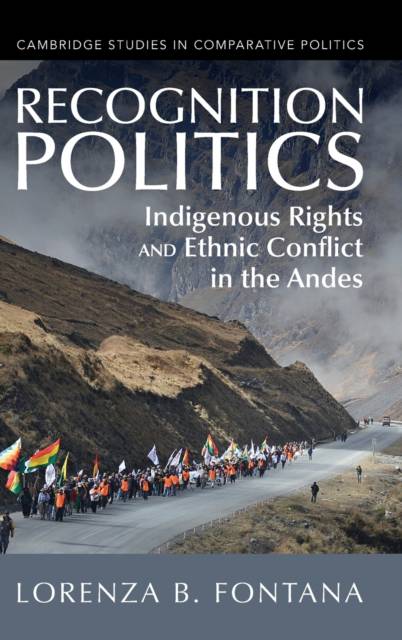
- Afhalen na 1 uur in een winkel met voorraad
- Gratis thuislevering in België vanaf € 30
- Ruim aanbod met 7 miljoen producten
- Afhalen na 1 uur in een winkel met voorraad
- Gratis thuislevering in België vanaf € 30
- Ruim aanbod met 7 miljoen producten
Zoeken
€ 144,45
+ 288 punten
Uitvoering
Omschrijving
This pioneering work explores a new wave of widely overlooked conflicts that have emerged across the Andean region, coinciding with the implementation of internationally acclaimed indigenous rights. Why are groups that have peacefully cohabited for decades suddenly engaging in hostile and, at times, violent behaviours? What is the link between these conflicts and changes in collective self-identification, claim-making, and rent-seeking dynamics? And how, in turn, are these changes driven by broader institutional, legal and policy reforms? By shifting the focus to the 'post-recognition, ' this unique study sets the agenda for a new generation of research on the practical consequences of the employment of ethnic-based rights. To develop the core argument on the links between recognition reforms and 'recognition conflicts', Lorenza Fontana draws on extensive empirical material and case studies from three Andean countries - Bolivia, Colombia and Peru - which have been global forerunners in the implementation of recognition politics.
Specificaties
Betrokkenen
- Auteur(s):
- Uitgeverij:
Inhoud
- Aantal bladzijden:
- 250
- Taal:
- Engels
- Reeks:
Eigenschappen
- Productcode (EAN):
- 9781009265539
- Verschijningsdatum:
- 5/01/2023
- Uitvoering:
- Hardcover
- Formaat:
- Genaaid
- Afmetingen:
- 152 mm x 229 mm
- Gewicht:
- 566 g

Alleen bij Standaard Boekhandel
+ 288 punten op je klantenkaart van Standaard Boekhandel
Beoordelingen
We publiceren alleen reviews die voldoen aan de voorwaarden voor reviews. Bekijk onze voorwaarden voor reviews.











